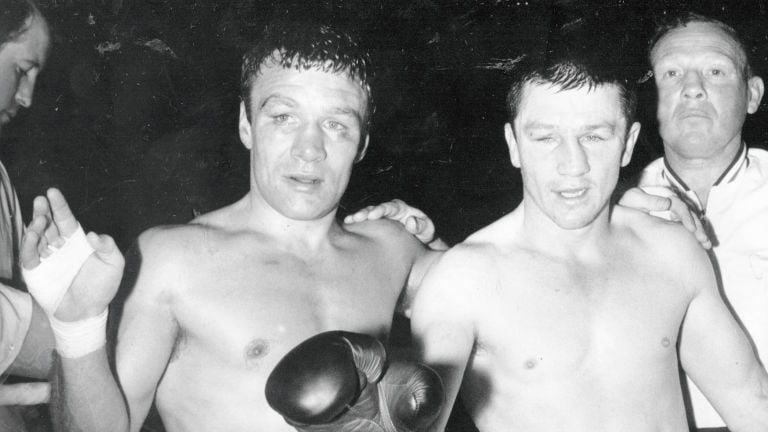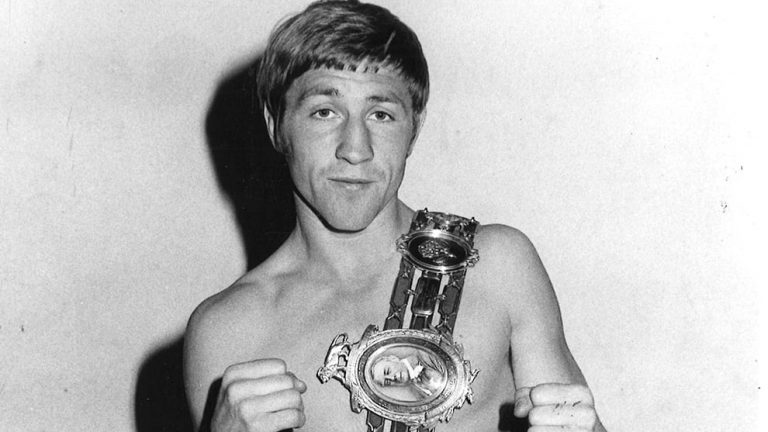Four Brits flourish in Saudi Arabia (but now must come home)
NINE days ago, Josh Taylor and Jack Catterall met for the second time in a fight presented by “Forged Irish Stout, Riyadh Season, and Drip”.
This, like the theme tune to a now-defunct CBeebies show, was a sentence repeated throughout the event by the night’s excitable announcer David Diamante and each time it was said one couldn’t help but feel disoriented by the thought of the star of Road House, a never-ending celebration in the Middle East, and the preferred water of a man whose name I just seconds ago discovered thanks to Google all supporting British boxing on this particular night.
They were, of course, only sponsors, so there is no issue there, but it was odd all the same to discover both that there is a person called Big Zuu and that Riyadh Season had somehow stretched to Leeds. If nothing else, the latter proved just how all-pervading the Middle East influence on British boxing has become in recent times. It also suggested that there will, going forward, be some form of an attachment regardless of where a fight takes place; regardless, too, of the long-term ramifications.
For now, all we know is that fights like Taylor vs. Catterall II are being dwarfed by virtue of so many bigger and better fights taking place in Saudi Arabia. Either side of that fight, for example, you had two shows out there: one headlined by the heavyweight fight between Oleksandr Usyk and Tyson Fury and the other the much-talked about “5 v 5” concept in which boxers from Matchroom and Queensberry were pitted against each other. Stuck between these shows there was always a danger of Taylor vs. Catterall II sinking without a trace and certainly, if you spoke to anyone outside the boxing bubble, you would have received no indication of an awareness that the fight was going ahead that weekend, much less any great interest in it.
This becomes all the more galling when you consider the significance of the controversy which followed the pair’s first fight, televised by Sky Sports in 2022. Back then, it appeared as though the two super-lightweights were on course to become major rivals with an opportunity to at the very least cash in on what many believed were erroneous scorecards. An immediate rematch, it seemed, was not only the natural next fight for both but, much like the 2014 rematch between Carl Froch and George Groves, there was a sense, too, that it would have been much bigger and more important than the first.
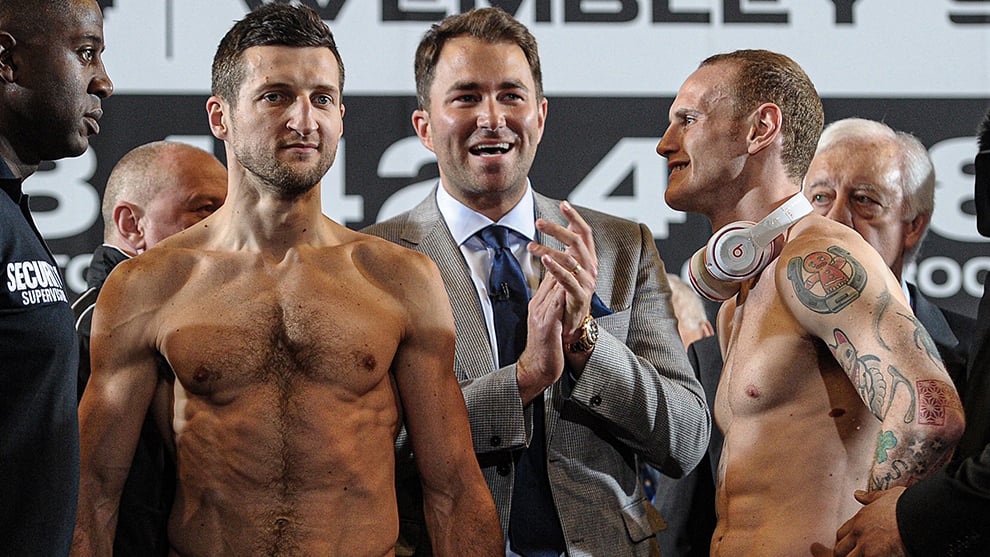
Froch and Groves before their rematch in 2014 (CARL COURT/AFP via Getty Images)
As it happened, this never materialised. Instead, Taylor lost his belts against Teofimo Lopez and Jack Catterall continued to wait (winning a couple of fights in the process). Then, at last, almost by default, they were finally again brought together, in Leeds of all places, and would find themselves sandwiched – like rubber cheese or dinosaur ham – between two slices of freshly baked sourdough. This did nothing to impact the appetite of those already hungry for the fight, one should point out, but it was difficult not to imagine how much bigger the rematch could have been had it (a) happened immediately and (b) not become an afterthought to all the fun currently happening in Saudi Arabia.
In fact, when you look at a fight like Taylor vs Catterall II, and when you consider the speed with which big fights are being outsourced to the Middle East, you do start to question whether this, a fight like Taylor vs. Catterall II, is going to be as good as it gets in British boxing for the time being. Meaning: are we now at the stage where any fight bigger than Taylor vs. Catterall II will inevitably end up taking place in the Middle East, irrespective of the nationalities of the two boxers involved?
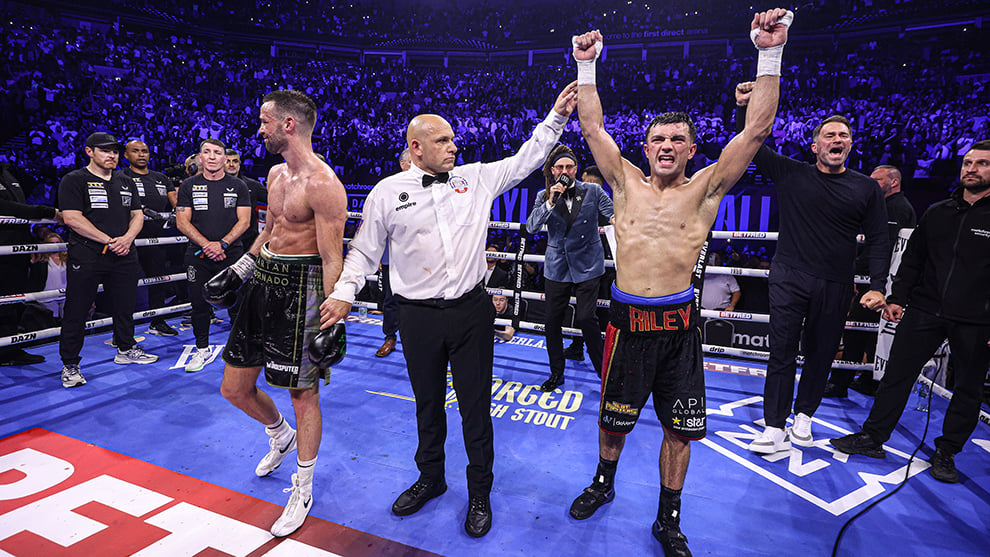
Jack Catterall celebrates beating Josh Taylor in Leeds
For the boxers themselves, this is less of an issue than it is for the fans. They, after all, just want to get paid and by all accounts in the Middle East that is precisely what happens: you get paid. For them, a ring is a ring and they couldn’t care less whether getting paid requires them to fight in front of thousands of British fans at home or a load of sheikhs on foreign ground. They will simply go where the money is, as is their right.
Yet for the fans, and indeed the health of British boxing, you do wonder about the long-term effects of this latest development. If, for instance, big fights start to dry up in the UK, the sport’s visibility in the UK will invariably dwindle, as will the collective urge to attend events on the occasions that they do happen on British soil. It will be seen more as a television product and not something for which you travel and pay money for a ticket. We now have apps, after all. We have illegal streams. We have wall-to-wall coverage at our fingertips. Why bother leaving the house?
Similarly, by paying extortionate purses to fighters to ensure big fights happen in Saudi Arabia, you only widen the chasm between the ones at the top and the ones at the bottom. This will, with enough time, then start to mimic society in a way you would rather it didn’t; by, that is, eliminating boxing’s middle class, leaving us with just the super-rich and those struggling to stay warm.
On Saturday (June 1) in Riyadh, we had a selection of British boxers from that middle rung in action, with each of them coming away victorious. We had Willy Hutchinson, we had Nick Ball, we had Hamzah Sheeraz, and we had Daniel Dubois. All, a few years ago, would have been the kind of fighters you would see headlining events in the UK, only now, because of the sea change, they have the option of securing their career-best wins in Saudi Arabia and presumably receiving career-best paydays to boot. This, again, is perfectly fine. Understandable. The done thing. Yet, when you look at the British talent involved on that “5 v 5” event, it is nevertheless important to stress the need for these boxers to start/continue building their careers in the UK – headlining events over here – and resist the temptation to become either key players or side dishes on future Saudi events. Bring them all home, in other words. Bring them home to help us find some stability and sustainability on the UK scene. Bring them home to ensure Riyadh Season remains just a fruitful season for British boxers and not their whole identity, lifestyle, and master.
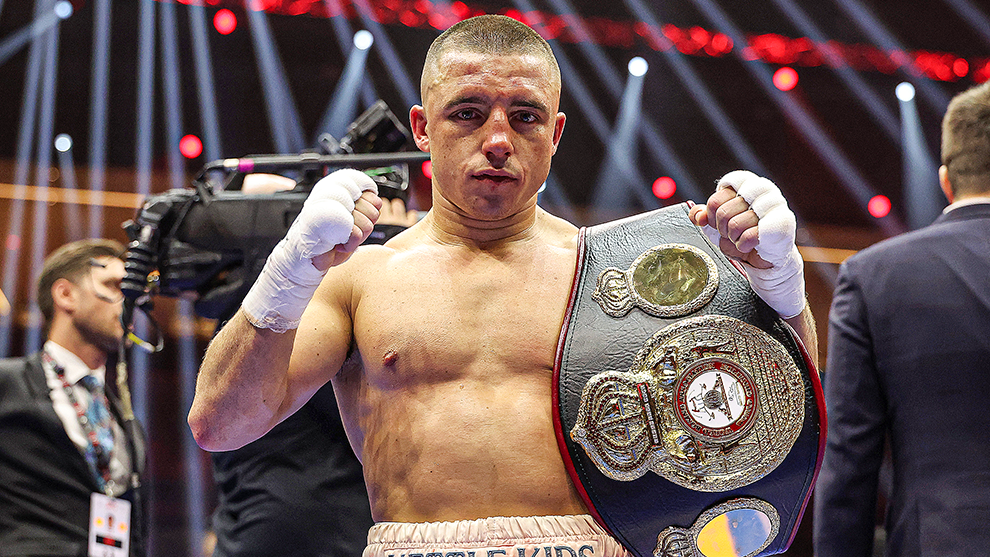
Nick Ball with his WBA belt


